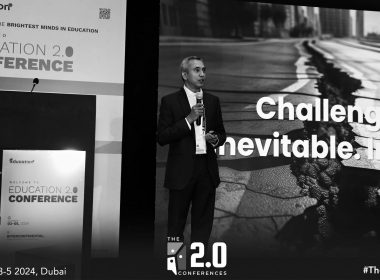Nobody knows pressure quite like a private equity-backed CEO. The clock’s ticking, investors are watching and every decision could make or break the company. That’s where Archita Fritz comes in. After two decades helping launch products worth $2.1 billion across 128 countries, she’s seen what works – and what crashes and burns.
Here are three critical lessons by Archita to every leader out there balancing the razor’s edge of PE-backed expectations:
1. Rethinking the Rule of 40
Numbers don’t tell the whole story. That’s something Archita learned while working with companies at different growth stages. “The Rule of 40 is a compass, not a blunt instrument,” she points out, cutting through the usual private equity jargon. What works for an early-stage company burning cash for growth won’t cut it for mature businesses looking to balance their books.
Archita isn’t just talking theory. She’s seen companies chase growth at any cost, only to watch their profits disappear. “Not all growth is equal,” she warns. “Scaling low-margin customers or channels could meet revenue goals while quietly eroding profitability.” The solution? Get your hands dirty with the details. Archita recommends regular ROI reviews at both customer and product levels, figuring out where to pour gas on the fire and where to pump the brakes.
2. Building Smart Accountability
Speed kills in private equity – but so does micromanagement. Archita has watched too many teams get bogged down by control freaks or knee-jerk decision making. “The answer isn’t more control—it’s clarity,” she says, laying out a better way forward. Think of accountability like guardrails on a highway, not a leash on a dog. Archita pushes leaders to connect the dots between daily work and investor expectations. Everyone, from the mailroom to the boardroom, should see how their work builds value.
Her fix for keeping things moving? Weekly leadership stand-ups that solve problems instead of just checking boxes. “Focus on outcomes, not tasks,” she advises, keeping teams nimble while staying on track.
3. Speaking the Language of Value
Here’s where Archita sees many companies stumble: they’re still pitching features while boards want to hear about value. “Growth is easier to achieve at scale when your stakeholders understand your true value,” she explains. But too many teams get stuck in the weeds, missing chances to build strategic partnerships where they matter most. The solution isn’t complicated, but it takes work. Archita pushes companies to level up their story, talking about systemic solutions instead of product features. That means showing how you reduce risk, speed up market entry, or drive real outcomes. Back it up with case studies that prove your worth in dollars and cents, not just technical specs.
Engineering Growth Under Pressure
Leading a private equity-backed company isn’t for the faint of heart. Archita has seen the pressure build-up up close, working with leaders trying to deliver today while planning for tomorrow. “It’s about moving beyond reactive decisions to a state where every action is intentional and tied to value creation,” she explains. Some leaders just manage growth. The smart ones engineer it. Archita helps them balance the building blocks – execution, culture, and positioning – to create something that lasts longer than the investment cycle. After helping launch those 25+ products worth billions, she’s learned that success isn’t about working harder – it’s about working smarter.
Archita keeps pushing leaders to think bigger while watching the details. It’s a balancing act, sure. But after two decades in the game, she’s showing others how to walk that line without falling off. For those willing to listen, she’s still sharing what works on her website and her LinkedIn profile.











